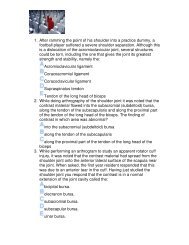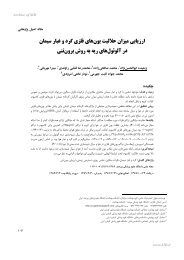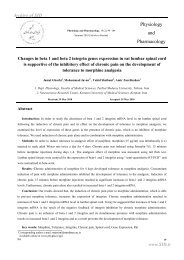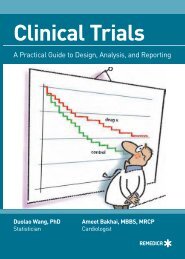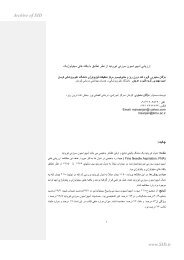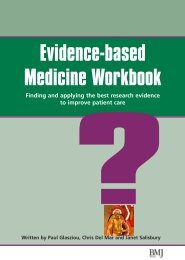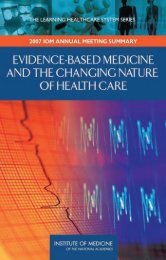Evidence-based Medicine Toolkit
Evidence-based Medicine Toolkit
Evidence-based Medicine Toolkit
You also want an ePaper? Increase the reach of your titles
YUMPU automatically turns print PDFs into web optimized ePapers that Google loves.
14 <strong>Evidence</strong>-<strong>based</strong> <strong>Medicine</strong> <strong>Toolkit</strong>3 Primary sourcesAt some point you will find yourself searching the massive collectionsof bibliographic records available in online databases.Choosing the right bibliographic database(s)DatabaseCINAHLMEDLINEEMBASEPsycLITCoverageNursing and allied health, health education,occupational and physiotherapy, social servicesUS database covering all aspects of clinical medicine,biological sciences, education and technologyEuropean equivalent of MEDLINE, with emphasis ondrugs and pharmacologyPsychology, psychiatry and related disciplines, includingsociology, linguistics and educationSearch strategies for MEDLINE and other bibliographic databasesThere are two main types of strategy for searching bibliographicdatabases: thesaurus searching and textword searching. You needto combine both of these to search these databases effectively.Why do we need both of these?Unfortunately, the index may not correspond exactly to yourneeds (and the indexers may not have been consistent in the waythey assigned articles to subject headings); similarly, using textwordsearching alone may miss important articles. For these reasons, youshould use both thesaurus and textword searching.Most databases allow you to build up a query by typing multiplestatements, which you can combine using Boolean operators (seebelow). Here is an example from PubMed (www.pubmed.gov).



